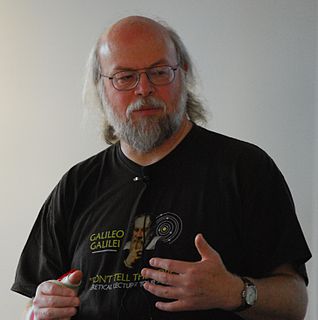A Quote by James Gosling
Java the language is almost irrelevant. It's the design of the Java Virtual Machine. And I've seen compilers for ML, compilers for Scheme, compilers for Ada, and they all work. Not many people use them, but it doesn't matter: they all work.
Related Quotes
When you choose a language, youre also choosing a community. The programmers youll be able to hire to work on a Java project wont be as smart as the ones you could get to work on a project written in Python. And the quality of your hackers probably matters more than the language you choose. Though, frankly, the fact that good hackers prefer Python to Java should tell you something about the relative merits of those languages.
All of us who attended the meeting - including Microsoft - unanimously agreed that unilaterally extending the Java programming language would hurt compatibility among Java tools and programs, would injure other tools vendors and would damage customers' ability to run a Java-based software product on whatever platform they wished.


































